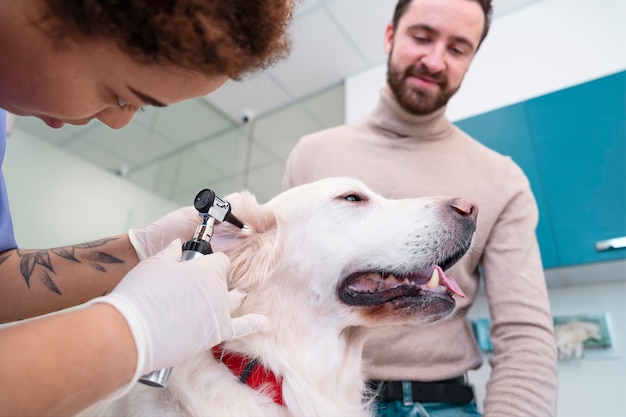Protecting Your Pet From Getting Lost

July is Lost Pet Protection Month, a time to focus on preventing the heartache of a lost pet. Pets4Life Animal Hospital offers some important tips to help you keep your pets safe.
Collars and Tags. Be sure to keep a secure collar on your pet with tags showing your contact information, as well as rabies vaccines. While collars may fall off, they are a great first line of defense for people to help locate a lost pet.
Leashes. In most towns, it is not legal to have your pet off leash in public places. Be sure that your pet’s collar is secure so that your pet cannot slip out and run away. If you are in a place where off-leash is permitted, you should know that even well-trained dogs are at risk of loss if they get distracted by an animal or scent. Always use a leash unless you are in a safe area and you are sure you can control your dog and protect from danger.
Microchipping. One of the most effective measures in lost pet prevention is microchipping. Microchipping your pet provides a permanent form of identification that can help reunite you with your pet if they become lost. A microchip is implanted under your pet’s skin and contains a unique identification number. This number is linked to a national pet recovery database and (provided you properly register) to a company that hosts your contact information to unite you with your pet. Pets4Life Animal Hospital offers microchipping services and can help you register your pet's microchip to ensure your contact details are up to date.
Air tags. Air Tags for pets are a great way to find your pet who has escaped. Airtags generally work with bluetooth technology and can help locate the actual location of your pet (provided they are in range). Apple airtags connect to your - and everyone else’s - iphone so your pet will be locatable as long as it is within distance of anyone with an iphone.
Secure Home and Yard. Another critical aspect of lost pet prevention is ensuring your home and yard are secure. Pets can be incredibly resourceful when it comes to finding ways to escape, whether through a gap in the fence, an open window, or even digging under a barrier. Regularly inspect your home and yard for potential escape routes and make necessary repairs or adjustments. Installing pet-safe fencing and gates can significantly reduce the risk of your pet wandering off. For extra security, consider adding locks to gates and doors to prevent accidental openings. If you do not have a fenced-in yard, consider an invisible fence. There is wired technology that is installed in your yard, and more recently there are new products with GPS technology to protect your pet. These systems require training and Pets4Life can help connect you with trainers to make sure your pet learns the zones of the invisible fence.
Training. Training your pet to respond to commands, especially recall commands, can be a lifesaver. Teaching your pet to come when called, stay, and leave objects alone can prevent them from running off in the first place. Positive reinforcement training techniques can be very effective, and consistent training and practice can make a significant difference in your pet's safety. Pets4Life has partnered with Colton Brooks to offer training on site at 661 Central. Please contact us if you would like to learn more about training your pet or visit our website at Pets4.com.
Pet Profile. In addition to physical and behavioral measures, it's important to be prepared for the possibility that your pet could get lost. Creating an up-to-date pet profile with recent photos, distinctive markings, and any medical conditions can be invaluable in the event of a lost pet situation. Having this information readily available can help you create lost pet posters, social media posts, and reports for local shelters and veterinary clinics quickly and accurately.
Community. Community involvement is another key element in protecting pets from becoming lost. Get to know your neighbors and inform them about your pets. A strong community network can help keep an eye out for your pet and report sightings if they go missing. Consider joining local pet groups or online communities where members share information about lost and found pets. Being an active part of these networks can increase the chances of a quick reunion if your pet ever gets lost.
Lost Pet Protection Month serves as a reminder to take proactive steps to protect our pets and prevent the heartache of losing them. Pets4Life is dedicated to helping you keep your furry friends safe and secure and reducing the risk of your pet getting lost.
If you need assistance with microchipping, pet training, or have any concerns about your pet's safety, please reach out to Pets4Life Animal Hospital. Visit us at 661 Central Avenue Highland Park, IL 60035 or call (847) 434-2745 for more information or to schedule an appointment today.






